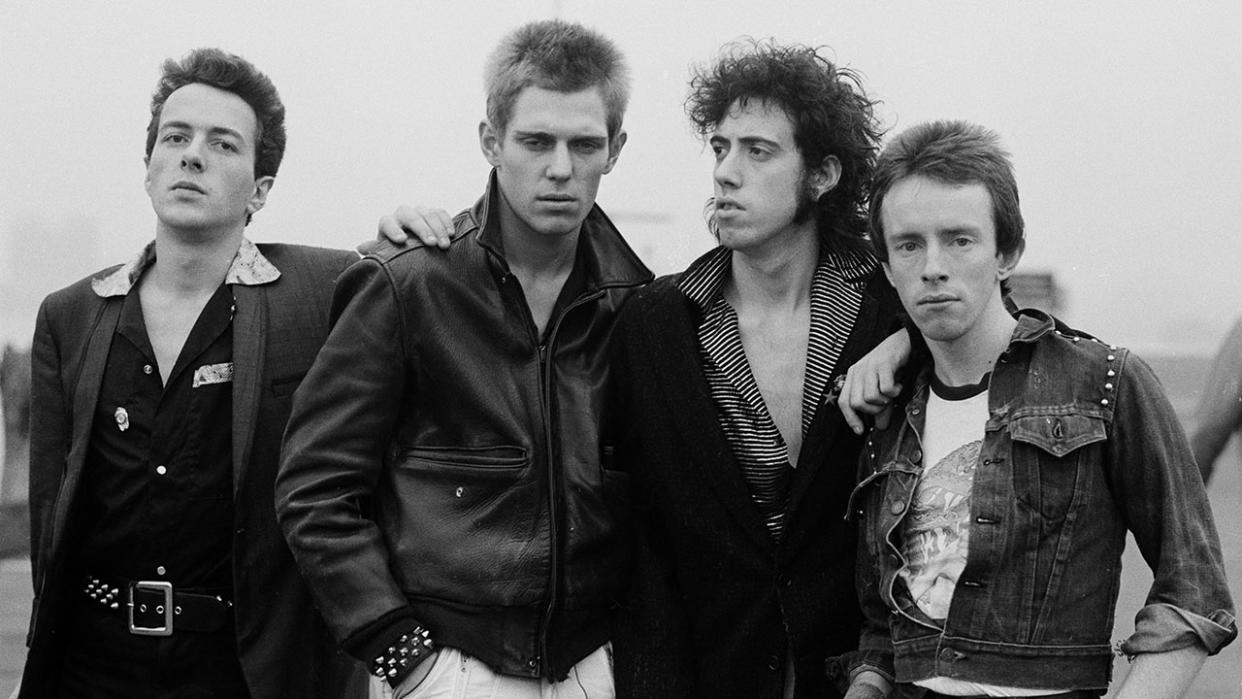Remembering the time The Clash turned up in Northern Ireland for a gig, but instead ended up causing a riot

The Clash embarked on their Out Of Control tour in the UK in autumn 1977 determined to demonstrate that the punk movement was still going strong and that the band’s spirit hadn’t been diluted by signing to major label CBS. “The situation is far too serious for enjoyment,” Joe Strummer told punk zine Sniffin’ Glue.
As if to show how sternly they were taking this, the band had opted to begin the tour at Belfast’s Ulster Hall. As recounted in Stuart Bailie’s book Trouble Songs: Music And Conflict In Northern Ireland, Belfast and the surrounding region were still in the middle of deeply difficult period. At the time of The Clash’s visit, Bailie reminds that the death toll during the Troubles stood at 2,062 people. The punk quartet made the front of the Belfast Telegraph the day that they arrived in October, 1977, but the following day’s headline was back to more pressing matters, running a warning to business owners about the threat of incendiary devices.
The gig at Ulster Hall was being promoted by the Northern Ireland Polytechnic Students’ Union (NIPSU), but as Bailie recounts, there was an issue that the band were unaware of as they were ferried from Aldergrove Airport in County Antrim to the Europa Hotel on Great Victoria Street. “The promoters did not have a letter of liability from an insurance company,” Bailie writes. “All had seemed fine three weeks ahead of the event but the cover was not confirmed on the day of the gig. It had actually been withdrawn.”
“Because the music was quite revolutionary, given the context of Belfast and the unrest and the troubles, the insurance company felt there could be elements that could possibly hijack this, and then there could be endless problems,” Peter Aiken, the NIPSU Vice President of Clubs and Societies who had been tasked with being the band’s driver, states in Trouble Songs.
That wasn’t the only problem the band had whilst visiting the city. Strummer had fretted beforehand that people might assume the band were there to entertain the troops, but in their fatigues and combat trousers, during a visit to a local radio station, Joe and Mick Jones were mistaken at reception for paramilitaries.
The day only got worse: heading back to the venue, after soundcheck the band were informed that the gig would be unable to go ahead. Outside the venue, word spread amongst those devotees who’d been queuing all afternoon. A line of punks blocked the road, others broke venue windows whilst a few faced off with security. There were five arrests, but hardened locals saw it as a storm in a teacup. “In terms of Belfast riots, it was about a two out of ten,” stated fan and punk rock songwriter Paul Burgess.
For Mick Jones, though, it was bigger than that. “The most horrible thing was the way the kids were treated,” he said dejectedly. “They didn’t have a chance to understand what was happening, so they were disappointed in us.” After trying to arrange a new venue to no avail, The Clash moved on to the next date in Dublin the morning after. But Bailie says that Strummer looked back on the non-event with warmth in 2002, quoting the singer: “Between the bombing and shootings, the religious hatred and the settling of old scores, punk gave everybody a chance to LIVE for one glorious, burning moment.” Trust Strummer to find a sense of meaning amidst all the chaos.
